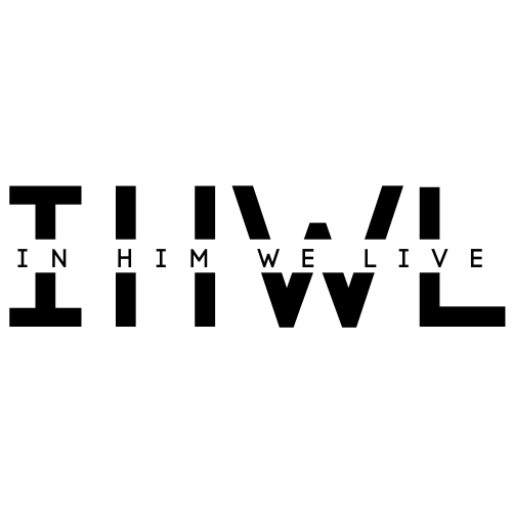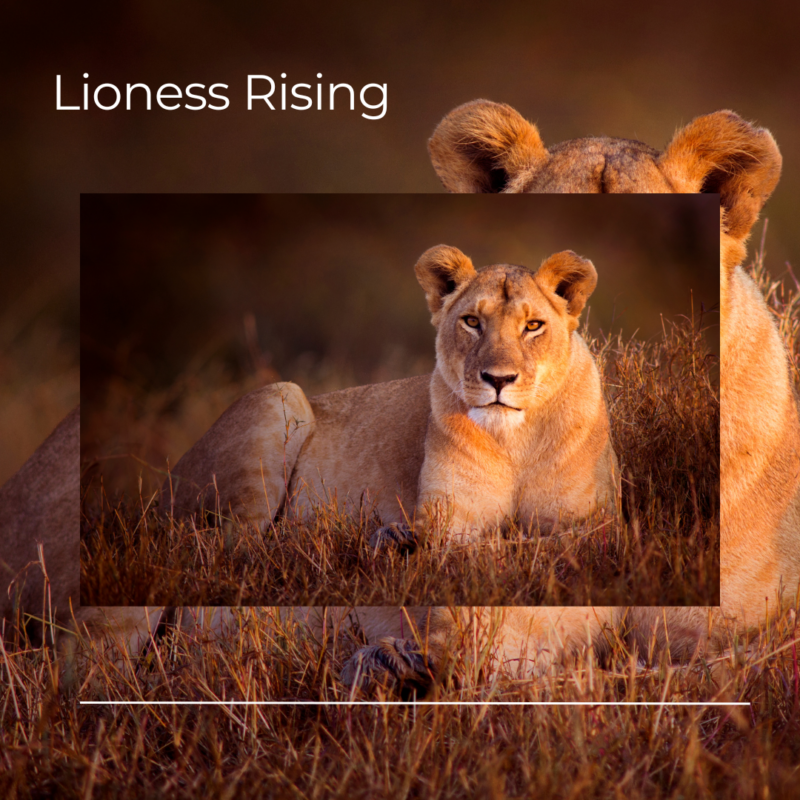Blog
The Lioness Rising
Imagine the early morning light spilling across the African savannah. The land is still, but not asleep. Off in the distance, you see her—moving with quiet purpose, low to the ground, eyes sharp, body poised. She is the lioness.
She doesn’t roar to prove her power—she doesn’t need to. Her presence speaks louder than noise. She surveys her pride, ever watchful. She hunts not for conquest, but for provision. She protects not out of fear, but out of instinctual, unshakable love. She is both fierce and nurturing, solitary and communal. She walks with the confidence of one who knows who she is—and who does not need to be told.
She is strength wrapped in grace. She is royalty born of resilience. And every step she takes is a declaration: ‘I am here. I am enough. I am needed.
These truths reflect the lioness’s deeper feminine wisdom—not as a warrior, but as a presence of sacred authority:She Is at Home in Her Body and Territory. The lioness knows her ground. She does not compete for space; she embodies it. Her strength comes from being grounded and aligned. She leads with presence, not pressure. She doesn’t need to prove anything. Her stillness holds power. Others follow her not out of fear, but because she radiates centeredness. She knows her value and honors it. A lioness rests when it’s time to rest. She doesn’t rush her timing. Her rhythm reflects wisdom and surrender to divine flow. She Is deeply connected to her pride. She is relational, not isolated. She gives, nurtures, and supports—but she also knows when to pull back and recharge. She Is rooted in divine design. She isn’t striving—she is being. Her essence is not accidental. She is the image of strength and grace in harmony.
Like the lioness, the woman of God embodies all of these characteristics.
- She is enough because He made her that way.
- She is strong because He made her that way.
- She is priceless because He made her that way.
- She is the heartbeat of society because He made her that way.
Genesis 2:18 says: “It is not good for the man to be alone; I will make him a helper suitable for him.”
1. Ezer (עֵזֶר):
- This word is not a term of inferiority. It’s used throughout the Bible, including many times to describe God as a helper to humanity (e.g., Psalm 121:1-2 – “My help comes from the Lord”)
- It implies strong support, life-saving assistance, and divine empowerment. So, when used of the woman, it means she is a powerful, essential force.
2. Kenegdo (כְּנֶגְדּוֹ):
- This literally means “corresponding to him,” or “in front of him,” or even “against him” in a balancing way.
- It implies equal opposition, like two forces that are matched. Not adversarial, but complementary—one who can stand face to face, as an equal counterpart.
Together, ezer kenegdo paints a picture of a strong, equal partner—not someone beneath or behind, but someone beside, whose strength balances and supports the other. It suggests a mutual relationship, rooted in equality, dignity, and purpose.
Why does this study matter?
Over time, translations and interpretations (especially in patriarchal systems) dulled the power of this phrase, turning “helper” into something more like “assistant.” But returning to the Hebrew roots reveals that woman, from the beginning, was created as a powerful presence, designed to stand with man in the fullness of purpose—not as a subordinate, but as an essential force.
• ‘Ezer’ is not a weak term—it is used of God Himself as a deliverer and protector. God is the only one ever referred to in these words, aside from woman. That should sand out to us.
Psalms 33:20
Our soul waiteth for the Lord; He is our help (ezer) and our shield.
Deuteronomy 33:26
Blessed are you, O Israel! Who is like you, a people saved by the Lord? He is the shield of your strength and the sword of your majesty.”
• ‘Kenegdo’ means corresponding to, face-to-face with, equal to.
Walter Kaiser (professor of old testament) believes Genesis 2:18 should this be translated: “I will make the woman a power or strength corresponding to the man.”
What a joy it is for a women to know God’s intention in her design. She was created as a necessary component to the overall thriving of man and earth. Her presence brings a completion to creation, a seal for balance, a purpose only she can fill. The Woman of God learns who she is and then radiates with this truth.
Together, ‘ezer kenegdo’ means a woman is created as a powerful presence, not to be behind or beneath—but beside, in Godly alignment.
As daughters of the Most High, we are invited to walk in the way of the lioness—not striving, not shouting, but standing deeply rooted in who we are.
Proverbs 31 refers to us as “a woman of strength and mighty valor!”
Just as the lioness, our greatest strength often flows from our quiet knowing, our sacred rhythm, and our sovereign presence.
We are ezer kenegdo. We are lioness.



A deeply impacting teaching. Absolutely loved the descriptive opening as well as the explanation of the Hebrew words “helper suitable”. God sees our worth and we need to do so also. Great job.
This is incredible❤️ I love you